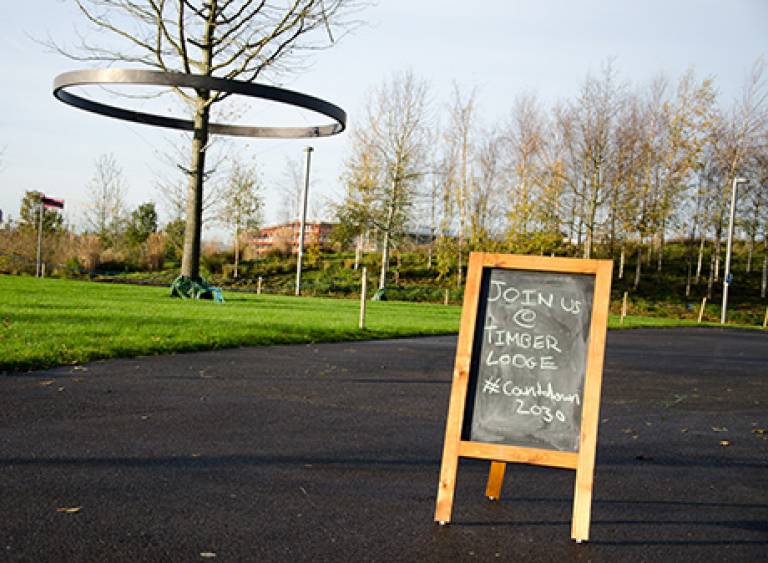SDGs, Milennials and optimism: the Countdown 2030 review
7 December 2015

By Hannah Sender.
After IGP’s first major conference – Countdown 2030 – on 28 November, opportunity for reflection has been rare. It was only this weekend that I had realised the impact Countdown 2030, a conference I had been organising since the summer, had had on my view on the possibility of sustainable development by 2030. I had begun the project of delivering Countdown 2030 with a cynical view on the collective goals, agreed on only a couple of months ago by the international community. This is not solely because past instances of goal-setting (the Millennium Development Goals) have floundered, but also because people I talk to, none of whom I would consider unintelligent or ignorant, are still convinced that technological advances will save the world from climate change. The Sustainable Development Goals (SGDs) require a collective understanding about what is at stake, and a step-change in our way of acting in and thinking about the world, but the conversations being had at international conferences are evidently not filtering into the lives of most Londoners. This is a major concern, especially since the gap in which we are able to reverse damaging behaviours and attitudes is shrinking (if it has not already closed).
But part of our collective duty is to resist fatalism. Countdown 2030 was conceived as a means of doing so, and was fuelled by determination of young people. The youth groups, students and researchers who met at Countdown 2030 on 28 November re-invigorated the drive to sustainable development that had been marred by lack of coordination and concern since the ‘failure’ of the Millennium Development Goals in 2015.
In East London, volunteers, participants and organisers took an active approach to exploration, walking, building and playing through major themes of sustainable development, including water management, the food economy and healthy lifestyles. A series of ‘food-fights’ – debates led by leading thinkers and young researchers on healthy eating and the politics of food – kicked off the day in Timber Lodge café.
Liliana Ortega and Fernanda Garcia-Alba’s Water Walk actively engaged its participants in the individual’s role in creating sustainable prosperity. Addressing the barriers caused by routine and social habits, Water Walk showed, rather than told, participants how action at the individual level can combat climate change.
Teresa Cisneros and the young artists’ collective, SorryThisMakesYouUncomfortable, invited participants to play a game of food sovereignty and food economies, drawing on the competitive spirit of ¡Loteria!: a Mexican-style bingo game played with picture cards. Through play, the participants were compelled to observe the unfair rules of the global food economy, and the possibility for fair play offered by alternative food growth and consumption patterns.
You can see photographs of the East London Sessions, taken by IGP partner Lensational, on IGP’s Flickr channel.
Meanwhile, another group of activists, students and researchers met in the UCL campus for a more typical conference. We heard from experts in the field of child and adolescent health and aspirations, learning about some of the ground-breaking research being conducted in our own university on the Millennial generation. Praveetha Patalay and Vanessa Moulton introduced the audience to the first analyses of the Millennium Cohort Study: a major longitudinal study that looks at, among other things, the changing aspirations of people as they grow up. Session 2 explored the challenges of the Millennial generation, and the relevance of children’s wellbeing in the debate about sustainable development. The afternoon sessions – Business for Social Progress and Citizen Science and Science Innovation – looked at business-led approaches to sustainable development and innovative techniques for local research. In the final panel, a quick-fire set of presentations, speakers told us how they engaged with local communities on issues facing them, and utilised the resources at their immediate disposal to create means of mapping the local environment.
In the wake of the Paris climate change talks, let’s see if we can hold onto that determined optimism which will keep us innovating for sustainable prosperity.
Photo credit: David Hoffmann, Lensational
 Close
Close

